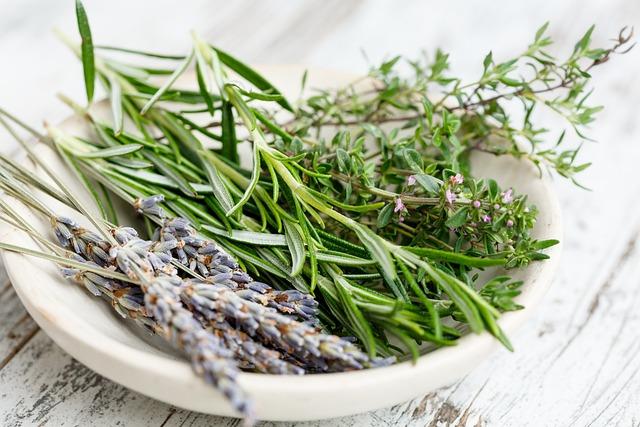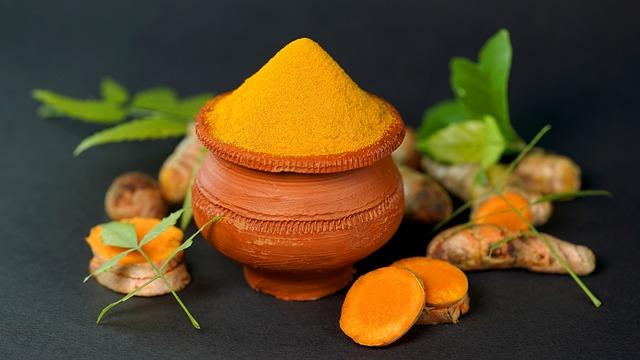No products in the cart.
How to use rosemary for health and medicinal purposes
Introduction
Rosemary, scientifically known as Rosmarinus officinalis, is a woody perennial herb that belongs to the mint family, Lamiaceae. It is a fragrant herb that is commonly used in cooking for its unique flavor and aroma. However, rosemary has been known for its medicinal properties for centuries, dating back to ancient Greece and Rome. In fact, it was considered a sacred plant in ancient times and was often used to ward off evil spirits. It was also used to improve memory, stimulate hair growth, and relieve pain.
Rosemary has been used as a medicinal herb for thousands of years, and its use can be traced back to ancient civilizations such as the Egyptians, Greeks, and Romans. The herb has been highly valued throughout history, not only for its culinary uses but also for its medicinal properties. Rosemary was believed to have healing powers and was often used to treat various ailments, including indigestion, respiratory problems, and muscle pain. Additionally, it was used in aromatherapy to promote relaxation, improve mood, and enhance cognitive function. In modern times, rosemary is still recognized as a powerful herb that can offer numerous health benefits when used correctly.

Overview of Rosemary’s Health Benefits
Rosemary is a powerful herb that has been shown to offer numerous health benefits. One of the most notable properties of rosemary is its antioxidant and anti-inflammatory effects. Antioxidants are important for protecting the body from oxidative stress, which can lead to chronic diseases such as cancer and heart disease. Rosemary contains compounds such as carnosic acid and rosmarinic acid that have been shown to have antioxidant and anti-inflammatory effects. These compounds work by neutralizing free radicals and reducing inflammation in the body, helping to protect against chronic disease and promote overall health.
Improving Cognitive Performance
In addition to its antioxidant and anti-inflammatory properties, rosemary has also been shown to have cognitive benefits. Specifically, it has been found to improve memory and concentration. Studies have shown that inhaling rosemary oil can help improve cognitive performance, including memory recall and mental processing speed. Additionally, rosemary has been found to have mood-boosting effects, which can also help improve cognitive function. These cognitive benefits make rosemary a popular natural remedy for improving mental performance and focus.
Relieving Pain
Rosemary has also been used traditionally as a natural pain reliever. Studies have found that rosemary can help alleviate pain caused by conditions such as arthritis and muscle soreness. This is thought to be due to its anti-inflammatory properties, which can help reduce pain and swelling in affected areas. Additionally, rosemary has been found to have analgesic effects, meaning it can help reduce pain perception in the body.
Boosting Immunity
Studies have found that rosemary contains compounds that can help stimulate the immune system and protect against infections. For example, carnosol, a compound found in rosemary, has been shown to have antimicrobial effects against several types of bacteria. These immune-boosting properties make rosemary a popular natural remedy for preventing and treating infections.

Ways to Use Rosemary for Health and Medicinal Purposes
Rosemary is a versatile herb that can be used in a variety of ways for its health and medicinal benefits. Here are some ways to incorporate rosemary into your daily dietary routine;
Rosemary Tea:
Rosemary tea is a popular way to enjoy the health benefits of this herb. To make rosemary tea, steep 1-2 teaspoons of dried rosemary leaves in hot water for 5-10 minutes. Strain and enjoy. Rosemary tea is known for its ability to improve digestion, boost the immune system, and relieve headaches.
Aromatherapy:
Rosemary essential oil is often used in aromatherapy to promote relaxation, reduce stress, and improve mental clarity. To use rosemary essential oil, add a few drops to a diffuser or mix with a carrier oil and apply topically. You can also inhale the aroma directly from the bottle for quick relief.
Cooking:
Rosemary is a popular herb in cooking and can be used to add flavor and nutrition to a variety of dishes. Add fresh or dried rosemary to roasted vegetables, grilled meats, and soups for a delicious flavor boost. Rosemary is also a good source of antioxidants, which can help protect against chronic disease.
Topical Treatment:
Rosemary oil or a rosemary-infused salve can be used topically to relieve joint pain, muscle soreness, and skin irritations. Mix a few drops of rosemary essential oil with a carrier oil such as coconut or olive oil and apply to the affected area. For a soothing salve, combine melted beeswax with infused rosemary oil and apply to the skin.
Dosage and Safety:
While rosemary is generally safe when used in moderation, it is important to be mindful of dosage and potential side effects. High doses of rosemary can be toxic and can cause seizures, so it is important to use rosemary in moderation. Additionally, individuals who are pregnant, breastfeeding, or have certain medical conditions should consult with a healthcare provider before using rosemary. Rosemary is known to stimulate menstrual flow. Always use high-quality rosemary from a reputable source to ensure the herb is free of contaminants and toxins.
Recipes and DIY Remedies
Let’s explore ways you can experiment on your own with rosemary and reap its benefits;
Homemade Rosemary Hair Rinse:
Rosemary has long been used in hair care for its ability to improve scalp health and promote hair growth. To make a simple rosemary hair rinse, combine a handful of fresh rosemary sprigs with 2 cups of water in a pot. Bring to a boil, then let simmer for 10-15 minutes. Strain the liquid and let it cool. After shampooing, pour the rosemary rinse over your hair and massage it into your scalp. Rinse with cool water. This hair rinse can help soothe an itchy scalp, reduce dandruff, and add shine to hair.
Rosemary-Infused Oil:
Rosemary oil is a popular natural remedy for pain relief and relaxation. To make a rosemary-infused oil, combine dried rosemary leaves with carrier oil such as almond, jojoba, or coconut oil. Place the mixture in a jar and let it sit in a sunny spot for 2-4 weeks, shaking occasionally. Strain the oil and use it for massage or as a topical treatment for sore muscles and joints.
DIY Rosemary and Honey Cough Syrup:

Rosemary has been shown to have antiviral and antibacterial properties, making it a valuable natural remedy for cold and flu season. To make a simple rosemary and honey cough syrup, combine 1 cup of honey with 2-3 sprigs of fresh rosemary and 1 sliced lemon in a pot. Bring the mixture to a boil, then reduce the heat and let it simmer for 10-15 minutes. Strain the liquid and let it cool. Take 1-2 tablespoons of syrup as needed for coughs and sore throats.
Rosemary Recipes
Incorporating rosemary into various recipes at home is an easy way to add flavor and potential health benefits to your meals. Fresh rosemary can be added to roasted vegetables, marinades, and sauces to enhance the flavor profile. Rosemary can also be used in bread, pizza dough, and other baked goods to add a fragrant and herbaceous note. Additionally, infused oils and vinegar can be made by combining rosemary with olive oil or apple cider vinegar, which can be used in dressings and marinades. Experimenting with different ways to incorporate rosemary into your cooking can lead to delicious and healthy meals. Here are a few ideas on how you can include rosemary in your diet within seconds;
- Roasted Vegetables: Toss chopped fresh rosemary with vegetables such as carrots, sweet potatoes, or Brussels sprouts before roasting for added flavor.
- Grilled Meat: Use rosemary sprigs to brush olive oil onto grilled chicken or beef to infuse the meat with the herb’s flavor.
- Infused Oil: Make a rosemary-infused olive oil by combining fresh rosemary and olive oil in a jar and allowing it to infuse for a few days. Use the oil for salad dressings, marinades, or to drizzle over bread.
- Soups and Stews: Add chopped rosemary to soups or stews to enhance the flavor and nutritional value.
- Baked Goods: Add chopped rosemary to bread dough or sprinkle over homemade crackers for a fragrant and herbaceous note.
- Marinades: Combine fresh rosemary, garlic, and lemon juice with olive oil to make a flavorful marinade for chicken or fish.
- Tea: Make rosemary tea by steeping fresh or dried rosemary in hot water for several minutes. Add a bit of honey for sweetness.

How to Prepare Rosemary at home
Preparing rosemary at home is simple and easy. Here are some step-by-step instructions on how to do it:
- Buy or harvest fresh rosemary: The first step is to obtain fresh rosemary. You can find it at your local grocery store or farmer’s market. If you have a rosemary plant at home, you can harvest fresh rosemary from it.
- Wash the rosemary: Rinse the rosemary thoroughly under running water to remove any dirt or debris.
- Dry the rosemary: Gently pat the rosemary dry with a clean towel or paper towel.
- Remove the leaves from the stem: Hold the stem of the rosemary with one hand and use the other hand to pull the leaves in the opposite direction of growth. This will remove the leaves from the stem.
- Chop or mince the rosemary: Use a sharp knife to chop or mince the rosemary to the desired size.
- Store the rosemary: Place the chopped rosemary in an airtight container and store it in the refrigerator. It will last for up to a week.
- Dry the rosemary: If you prefer to use dried rosemary, you can air dry it by tying a bundle of rosemary together with string and hanging it upside down in a dry and well-ventilated area for a few days until it is completely dry. Alternatively, you can use a dehydrator to dry the rosemary.
Conclusion
Rosemary has a long history of use as a medicinal herb and is known for its numerous health benefits. It contains antioxidants and anti-inflammatory properties, which can help protect the body against various diseases. Rosemary is also known to improve cognitive function, boost the immune system, and may even have natural pain-relieving properties. It can be used in various ways such as making tea, using essential oil in aromatherapy, adding to cooking, or as a topical treatment. With its versatility, rosemary can be incorporated into daily routines to promote overall health and well-being.


